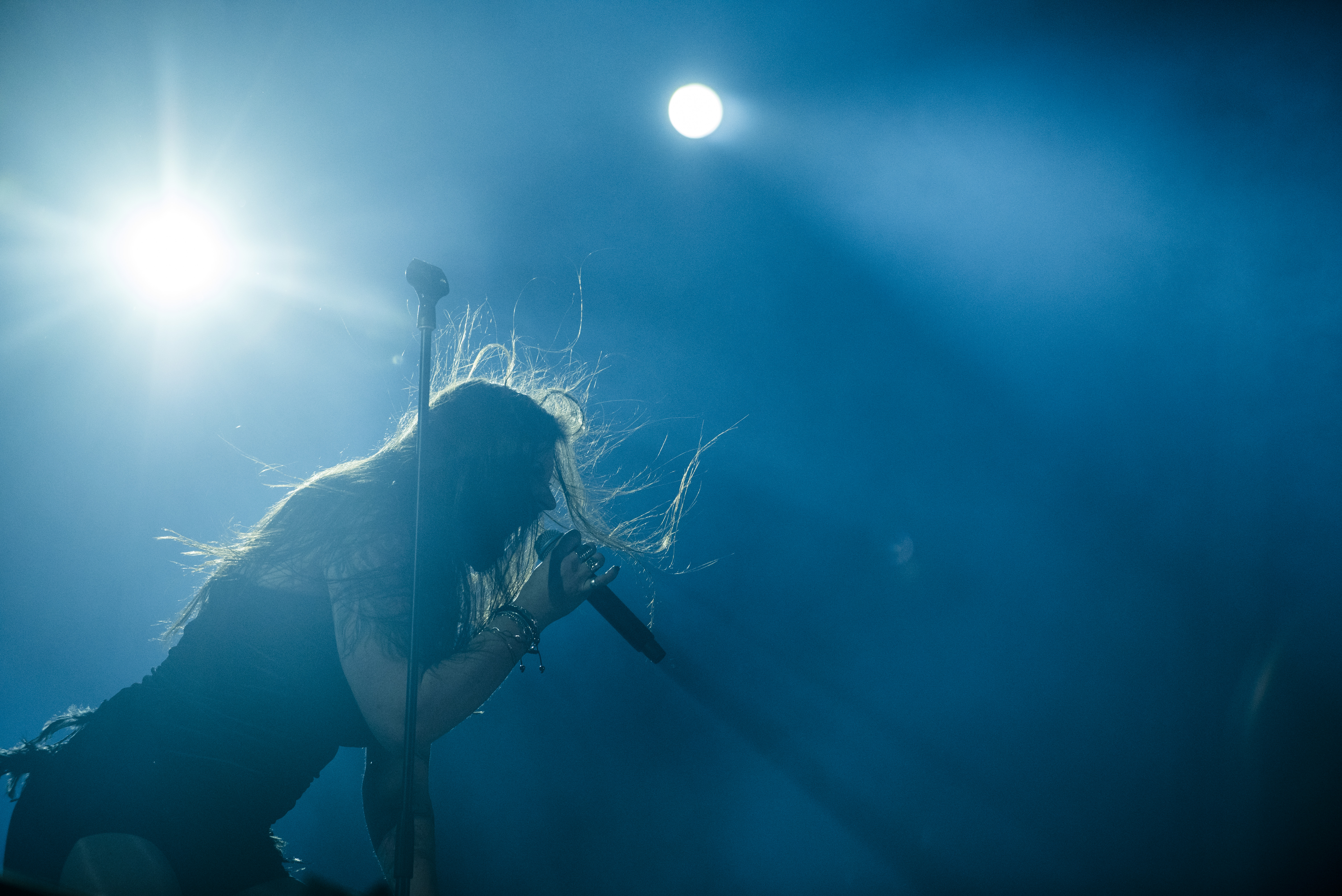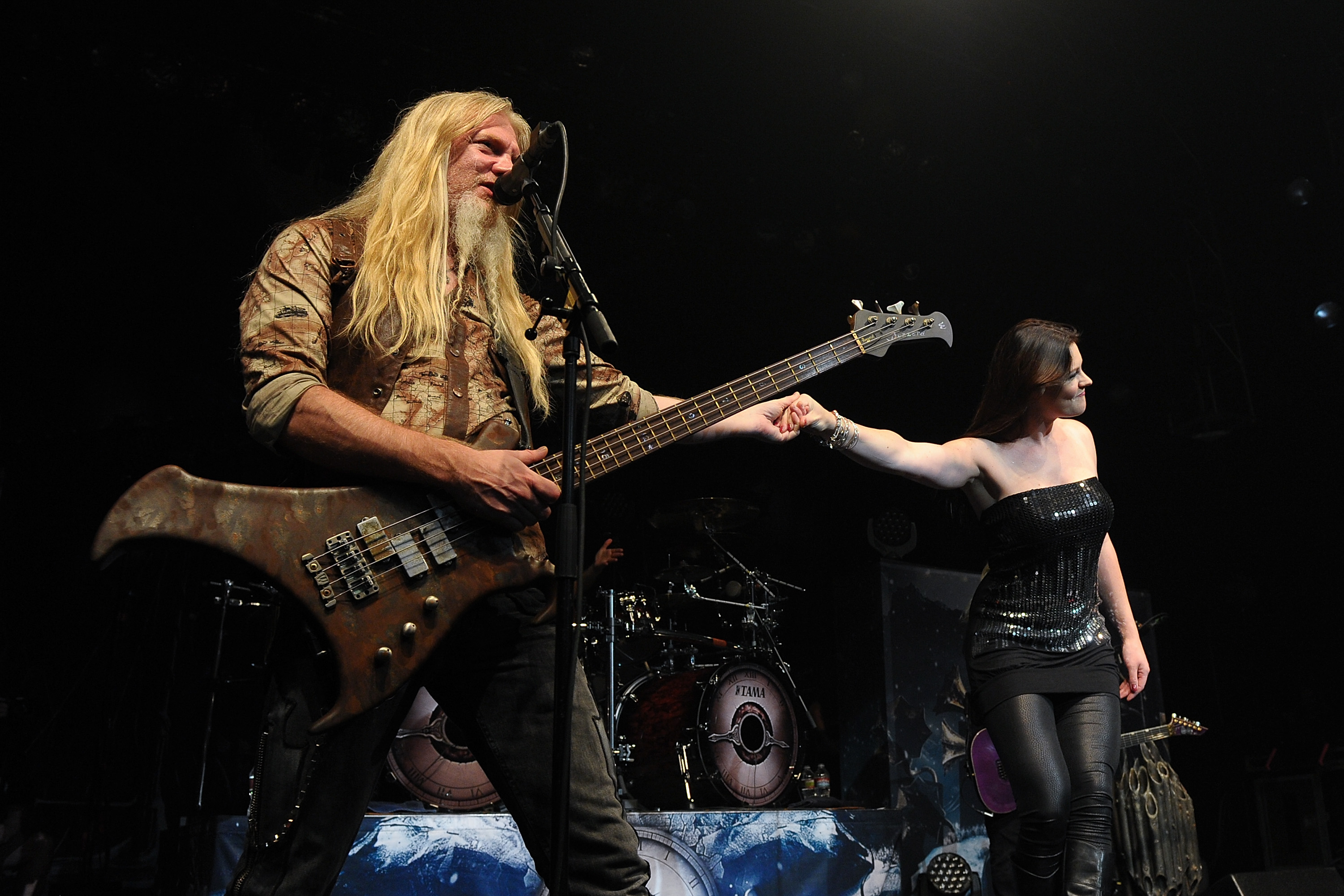There’s plenty of things in metal that may be true, but you’re not supposed to say them. You’re not supposed to repeat that Megadeth and Mayhem are less reliable live than West Ham United at home (one week, they’ll triumph over the very best, the next, they’ll be comfortably second best to some two-bob, no-talent outfit you’ve never heard of).
It’s not polite to point out that, while it might be hugely influential, Scum is a very long way from being Napalm Death’s best record. And no one wants to be the first to admit that death metal’s been in a creative slump since Decapitated’s Organic Hallucinosis came out. But if there’s one thing that will get you loudly told to fuck off by the band’s die-hard fans, it’s saying that Nightwish aren’t just better with Floor Jansen in the band than they were with Anette Olzon – it’s that they’re better with her than Tarja Turunen. And in fact, the band has never been in as good a state as they are now.
The Anette vs Floor case shouldn’t be hard to make – and, while this might be harsh on their former singer, you’ll find dissenting voices out there seem to be in the minority. Anette was a fine pop metal singer, but Floor can do that style better and with a more powerful, emphatic delivery, and injects far more personality into it to boot. But of course, it’s more than that: she can do the old stuff too.
Stargazers was back in the live set recently (one of the best surprises of Hellfest this year), with full operatic melodrama and all the trimmings – and Anette simply couldn’t pull that off so well. Add in that Floor’s a proper metal singer with a long pedigree, and – while Anette’s contribution to Imaginaerum was superb – it took about 15 minutes of the live show and three minutes of Endless Forms Most Beautiful to realise the Swede was not missed.

The Tarja case, however, is more difficult. She was, after all, the singer with who the band made their name, the singer with whom they made their most popular albums, and helped define (for better or worse) an entire subdivision of European heavy metal. And on paper, it’s hard to refute this. The first five albums (even the embryonic Angels Fall First) still stand up well after nearly two decades. Wishmaster is so rammed full of anthems you could re-release it as a Greatest Hits, there’s a glorious gothic darkness to Oceanborn that no corseted clone has managed to match no matter how many times they’ve ripped it off, and Century Child proved that there was more to the band than just an opera metal shtick.
It’s Once, however, where there are some cracks in the construction. And it’s not Tuomas Holopainen’s lush songwriting either. Nor is it the expanded presence of Marco Hietala’s vocals – in fact, the Tarot man’s presence had given Nightwish a huge boost. It’s not simply the clarity and tunefulness of Marco’s voice, it’s that he’s able to adapt it so easily to the context (contrast his performances on I Wish I Had An Angel, The Crow, The Owl And The Dove and Weak Fantasy for examples).
The problem is that Nightwish were, with hindsight, obviously straining at the confines of the “opera metal” tag – in fact, they’d arguably left it mostly behind by this point. The mellifluous vocal melodies that suited the earlier work is waning in favour of a generally more traditional, syllabic metal style, with the coloratura sections relegated to flavouring rather than the whole sauce. And Tarja was particularly well-suited to it – in fact, it’s arguably her weakest performance. On Wanderlust, she sounded like a superstar; on Nemo, she sounds like she was struggling to keep up.
Both Tarja and Anette are specialists; give them the style they are suited for and they’ll kick the crap out of most of the competition. But, like Sam Burgess, stick them into a format they know less well, and it’ll get messy fast.
Floor, however, has no such problems. She is equally accomplished doing the poptastic hooks, the boisterous metal singing, or the rich operatic style – sometimes all in one song, as in the absolutely brilliant closing number of the latest album. And this is not in the jack-of-all-trades, master-of-fuck-all sense it is may imply: Floor excels in all required styles.

Floor isn’t the only extra tool Nightwish now have, however. For one, they’ve got Kai Hahto on drums, and he’s brilliant. He’s so good, he taught former drummer Juka Nevalainen to play jazz drums for Slow, Love, Slow on Imaginaerum. They also now have a folk musician in the band full-time in the shape of Britain’s Troy Donockley (a decent singer to boot) so they aren’t forced to either drop certain songs from the setlist or synthesise the uilleann pipe parts. Add in the aforementioned excellence of Marco, and they have more assets than they have previously enjoyed. Plus, they are big enough to command a production budget to do their ideas justice.
This leaves Nightwish more flexible than they have ever been. If Tuomas Holopainen wants to write a ten-track, 40-minute album of pop metal hits with no fussing around and simple verse-chorus structure, he can. Or if he wants to write stupidly bombastic, inflated 24-minute songs featuring pipes, piano, orchestra, operatic singing, poptastic power vocals, big hooks, monkey noises and whalesong, and Richard Dawkins they can – and, indeed, have.
Of course, that isn’t to say that Endless Forms Most Beautiful is, by default, their best record – it isn’t. It’s darn good, but they’ve done better, and with both former singers. It’s let down in one or two places either by a bit of a clunk (the chorus of the title track is admittedly forced) or by the occasional slip from their high standards (Edema Ruh, in all honesty, is a bit wet).
This does not, however, serve as a guide for Nightwish’s future. Transition records are difficult at the best of times. Even though the opening track The Poet And The Pendulum is up there with the band’s best, Dark Passion Play, the band’s first record with Anette, is probably their weakest. It’s not poor, it’s just much worse than their best. Endless Forms… is only slightly off the top of the pile, and even that is purely down to a couple of duff moments. As a marker for the future, this is exceptionally encouraging, as the next album should be even better.
So then, Nightwish have their best, most versatile singer, can do anything from their catalogue live, and have managed to go through their line-up changes without haemorrhaging fans. Apparently that cliché about what doesn’t kill you might have some truth in it after all.
This article originally appeared in Metal Hammer #278.
For more Nightwish, including what went on backstage at their Wembley Arena show, then click on the link below.
